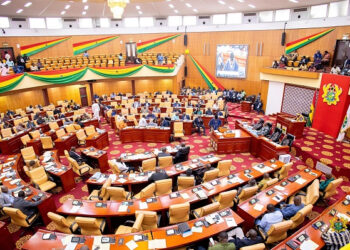The department of gender at the ministry of gender, children and social protection in partnership with the United Nations population fund (UNFPA) has commenced a four-day national gender equality clinic for adolescents as a way to help attain sustainable development goal five.
The annual program seeks to educate adolescents on issues of gender equality, sexual and gender-based violence, sexual and reproductive health rights and also provide them with information on career and life development.
Addressing participants, the National Director of the Department of Gender, Mrs. Faustina Acheampong said education and mentorship programs remain key to the empowerment of the girl and sustainable development.
She added that without education girls are denied the opportunity to develop their full potential and play their productive roles in their society and the country at large.
She, therefore, stressed the need to protect girls from gender-based violence and inequality.
“Reducing inequality strengthens economic and deals stable resilient societies that give all individuals the opportunity to fulfill their potential, therefore, supporting our girl’s pathway from education to employment requires more than learning opportunities in the classroom, it requires keeping girls safe from all forms of violence both in and out of school.”
She emphasized that the ministry will continue to coordinate gender-related issues that will provide adolescents with the right information, knowledge, skills, and services to prevent them from unplanned pregnancies and harm.
Mrs. Acheampong said the government of Ghana through the ministry of gender, children’s and social protection unit has developed several policies and enacted laws to protect girls and ensure that they attain their full potential and also contribute meaningfully to national development.
“Some of these laws include the national strategy framework, on ending child marriage and this strategy is from 2017 to 2026. We also have a five-year strategic plan to address adolescent pregnancy in Ghana and it’s from 2018 to 2022 in Ghana in the domestic violence act 2007 act 732 and the human trafficking act 2005 act 694. Again, the government through the Ghana education service has introduced the back-to-school campaign and re-entry policy which seek to ensure that school dropouts as a result of pregnancy return to school to continue their studies for the development of their lives and societies.”
She however appealed to stakeholders to support gender base programs that are geared towards youth empowerment.
Mrs. Acheampong also urged the adolescents to be advocates of gender equality.
Read also: National Population Council calls for Ghana’s Population growth rate to be addressed
Source: Dorcas Akpakudi/ATLFMNEWS


























